Photographs: Hitesh Harisinghani Matthew Schneeberger
Lord Meghnad Desai is a man of many and diverse talents.
As a politician, he was the first Asia-born, first generation immigrant to become a member of the United Kingdom's House of Lords. He's also an influential leader of the Labour Party, and is known in the British press for his pithy, humorous quotes.
As an economist, he taught at the London School of Economics for forty years, where he was named Professor Emeritus. From 1984 to 1991, he was co-editor of the Journal of Applied Economics.
As an author, he's penned books on a wide range of topics, including a biography of Bollywood legend Dilip Kumar.
Now he's trying his hand at fiction. In his debut novel Dead on Time, a political thriller about fictitious British Prime Minister Harry White, Desai gives an insider's view of British politics, the British press and life at 10 Downing Street.
The 68-year-old, Vadodara-native was in Mumbai last Friday as part of Dead on Time's India release tour. "I had a great time doing this," Desai said of his first foray into fiction. "As a young man, I had a creative bent, which I quickly suppressed. Now that I'm getting older, I'm rediscovering my creativity."
Desai -- never one to withhold his opinions -- also had much to say about the recently concluded Lok Sabha polls, the ongoing global recession and what agenda he would pursue if he were India's finance minister, among other things.
'Congress can easily survive for five years'
Image: Lord Desai discusses the 2009 Indian general electionPhotographs: Hitesh Harisinghani
"The election results were better than expected: an amazing, clean sweep. Congress can survive easily for five years. It's great! It's continuity! The Indian voter is actually very mature and very smart," Desai exclaimed. "The Indian government has been on a 20-year holiday, from 1989 to 2009. Now there is a chance to turn this around. The DMK episode shows me that maybe we have seen a real turning point in Indian politics."
To illustrate some of the differences between British and Indian politics, he compared the expenses scandal currently rocking the UK Parliament, which has forced the Speaker of the House of Commons to step down, to the 'Swiss banks' scandal in India's Parliament.
"It's a consequence of transparency. No one's grocery bill looks good," he said of the UK Parliament's expenses row. "There's a lot of scrutiny in the UK. Both the press and public are very critical of politicians there. But in my experience, British politics is honest and clean, even by European standards. [Politicians] are not there to make money. They're ordinary British -- middleclass. I think the Indian press is too respectful of politicians. Indian politicians can breech the rule of law if they want to, and make things very difficult for you if you oppose them. So journalists can't challenge politicians."
'Clean politics is guaranteed by clean civil society, not politicians themselves'
Image: Lord Desai and Malavika Sangghvi in conversationPhotographs: Hitesh Harisinghani
Speaking of the supposed crores (billions) of illegal money allegedly held in Swiss bank accounts by Indian politicians, Desai explained, "It won't have a major impact on the economy, but it would be good if it stopped. It's an issue of morality. It doesn't matter whether the money is stashed in Swiss banks or here in India, because the disease itself is right here."
Asked how the problem could be rectified, Desai shrugged and replied. "People in India are tolerant of the gross misbehaviour of elected officials. Clean politics is guaranteed by clean civil society, not politicians themselves. "
Still, Desai sees hope on the horizon. "What pleases me is that early signs indicate that MMS (Prime Minister Manmohan Singh) and Rahul (Gandhi) together are people who are willing to take risks to establish clean politics, while Sonia Gandhi is by nature risk-averse and cautious. Manmohan Singh is an honest, incorruptible politician. And Rahul too has been patient and straightforward. Plus, politics is the art of choosing between compromises you are presented with. And those two work very well together."
"But we don't really have inner-party democracy in India," he added. "There is some in the Bharaitya Janata Party and some in the Left, but there is no inner-party democracy in the Congress. When Indira Gandhi destroyed democracy within the Congress, it destroyed a model and an example for Indian politics. But I think Rahul and Manmohan hope for it and will strive for it."
On MMS: 'Don't overestimate him as an economist and don't underestimate him as a politician'
Image: Lord Desai poses with a glass a wine and a copy of Dead on TimePhotographs: Hitesh Harisinghani
Being an economist himself, Desai was asked to assess the prime minister's skills as an economic scholar. "Dr Singh is an applied economist. To make a name for yourself in our field, you have to study economic theory. He was never going to win a Nobel Prize for his work, because he didn't do theory," he stated bluntly. "Don't overestimate him as an economist and don't underestimate him as a politician."
As for the important position of finance minister, Desai laid out the agenda he would pursue if he were named to the post: "All subsidies for the middle class must be removed. Move from an income tax to an expenditure tax. Privatise most of the banks. All transactions above Rs 10 lakh (Rs 1 million) should necessitate a bank deposit."
He added that he disagreed with the decision to appoint Pranab Mukherjee as the finance minister. Still, he said, he prefers this option rather than selecting a specialised economist from outside the realm of politics, as many have suggested.
'I think a stimulus package is necessary, yes. Bailouts, no'
Image: Lord Desai discusses India's current economic situationPhotographs: Hitesh Harisinghani
"I have a very deep belief that Cabinet posts should be filled with politicians unless the economy is in serious meltdown, as it was in 1991, when Manmohan became finance minister," he explained.
"That was a time when nobody when was going to give India any money. People forget that we had to pawn our entire gold stock. Normally when you have gold stock, the International Monetary Fund accepts that that gold stock is there, and gives you money against it. India had to physically move the gold stock out of India, abroad. I'm informed, by very, very reliable sources, that the van taking the gold to the airport broke down, and there was total panic."
Desai used this point to illustrate how far India had come economically in such a short span of time. Now, he argued, India is better prepared to handle economic downturns, even ones as severe as the current ongoing global financial crisis.
For one, Desai suggested, today India has the capacity to provide a financial stimulus. "I think a stimulus package is necessary, yes. Bailouts, no. The Indian financial system has more or less held up very well. But there is a real need for a fiscal stimulus. Now that the elections are done; we can do the stimulus package."
'The real economy is still in great trouble. Not so much in India, but in America and Europe
Image: Lord Desai jokes about his Marxist pastPhotographs: Hitesh Harisinghani
As for the broader global financial crisis, Desai explained that the worst is over, but that many economies -- particularly in the West -- still must be restructured.
"No crisis is indefinite. There are always cycles in capitalism. Booms come to an end and slumps come to an end. This particular crisis was somewhat severe because there were two aspects to it. One was the financial system dysfunctioning, the instability in the financial system. And then the real economic crisis -- a real, ordinary, well-known recession, as it were," he said.
"The recession has been dealt with by Keynesian sorts of policies and so on. But the financial system going in meltdown required a recapitalization in financial system. [That aspect] was much more urgent and complex because of the toxic assets and all that. Now what it looks like is that that crisis, which has more or less been going on for about a year-and-a-half, and became severe with the Lehman Brothers collapse last September, is now finally being sorted out."
"We're on the up. Banks have been recapitalised. But the real economy is still in great trouble. Not so much in India, but in America and Europe. Very soon governments will have to pay much greater attention to the real economic crisis. Along the way, America for example, postponed the task of industrial restructuring."
"British economy went through that in the 1980s. America failed to do that. So the entire replacement of Detroit, it will be interesting to see how boldly Americans reconstruct Detroit, which is very necessary to do. Maybe that will make way for new green technologies. And America will also have to stop being afraid of outsourcing and things like that, and become a mature, confident country again."
On China's 'liberal economics' and 'illiberal governance'
Image: Lord Desai takes a question on China's economic and political systemsPhotographs: Hitesh Harisinghani
On that issue, the environment, Desai is a decided optimist.
"I very strongly believe the world will tackle green problems, for three reasons," he said. "One, behaviour will change and people will become more energy conscious. Two, prices will change, because of subsidies, cap and trade programmes, etc. Three, technology itself will change, and become more green-friendly."
Of his Marxist past, Desai is unapologetic, though his beliefs have been modified significantly over the years. He pointed to his experiences in the UK Labour Party as having helped him along this journey.
"In my case, it was three consecutive defeats for the Labour Party in the UK general elections (1979, 1983, 1987). I realised that the public was no longer listening to us, that there was a huge disconnect between our party and the public. There was something seriously wrong with Marxist principles. We needed to combine liberal economic reform with progressive social policy. That was the birth of the New Labour."
"You see the same sort of developments in China," he added. "After the collapse of the Union of Soviet Socialist Republics and that's what it was, a complete and utter collapse the Chinese Communists saw the flaws of the USSR's economic model. They also saw the success of Taiwan, this tiny little island that seemingly had no chance to prosper. The Chinese Communists are pragmatic politicians. They said: 'We'll not honour human rights, but we'll embrace capitalism.' So today what you have there is liberal economics mixed with illiberal governance."
Jokingly, he added, "I am the last Marxist. Everyone else is Leninist."

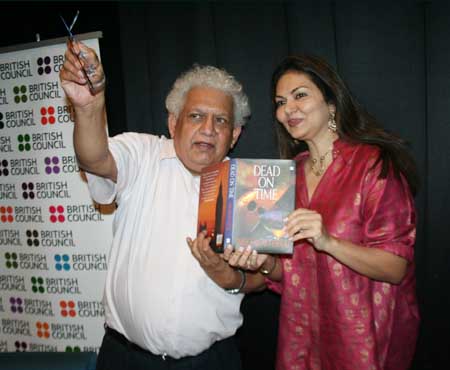
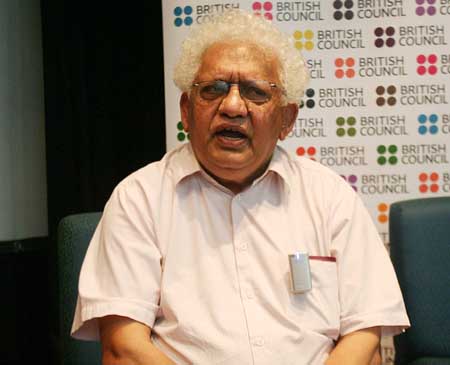
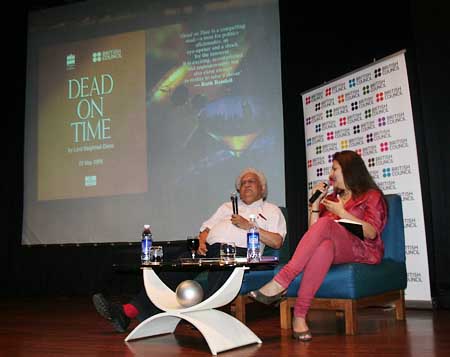
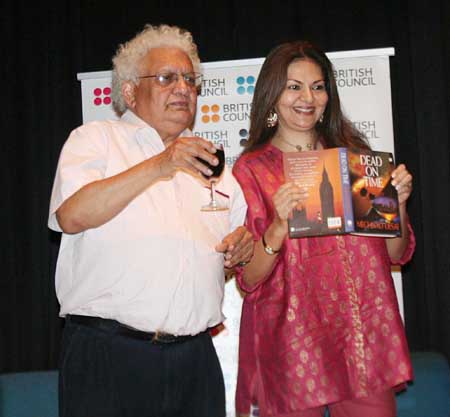
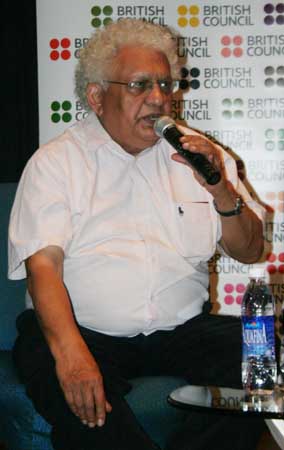
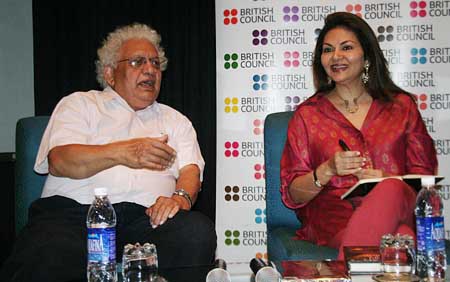
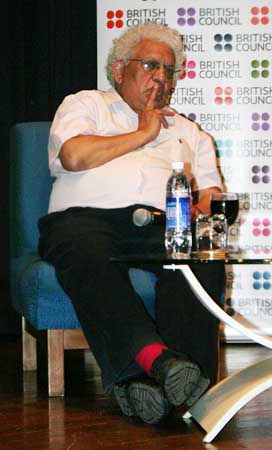
article